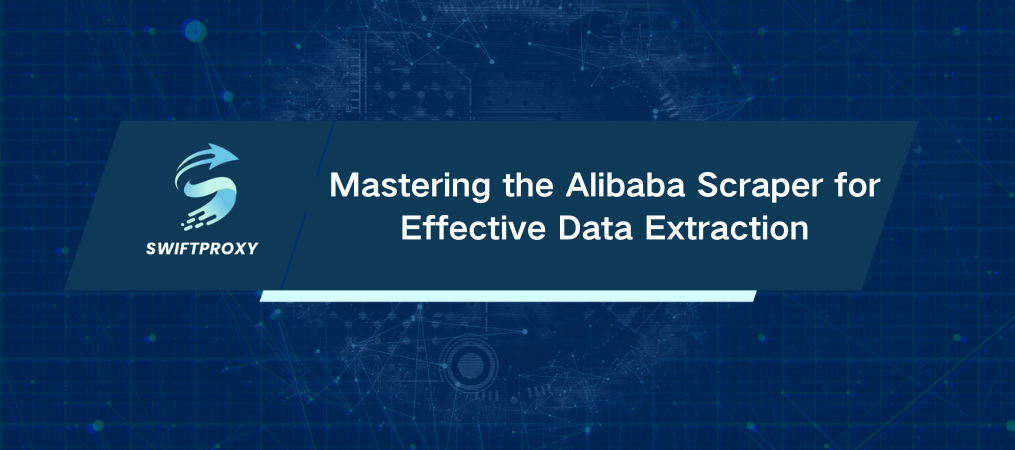Mastering the Alibaba Scraper for Effective Data Extraction

Imagine tapping into a treasure trove of data from one of the largest e-commerce platforms in the world. Alibaba offers a goldmine of insights into products, suppliers, and market trends. However, the challenge lies in navigating the risk of getting blocked while you scrape. So, how do you harness this potential without hitting a wall? Here, we explore actionable strategies to keep your scraping smooth and effective.
Choose the Right Alibaba Scraper
A solid foundation starts with selecting the right tool. Scrapy, BeautifulSoup, and Selenium are among the best choices for building an Alibaba scraper. These tools are designed to tackle complex websites like Alibaba. They come equipped with features that help you dodge detection. Invest some time in understanding how each tool works, and choose one that aligns with your specific needs. The right scraper is your first line of defense against getting blocked.
Implement Rotating Proxies
Think of rotating proxies as your secret weapon. They allow you to send requests from multiple IP addresses, making it nearly impossible for Alibaba to track your activities. Various proxy services offer rotating proxies specifically tailored for web scraping. By distributing your requests, you reduce the chances of being flagged as a bot. Explore options and choose a reliable proxy service that fits your budget and requirements.
Copy Human Behavior
Ever noticed how bots seem robotic? That's exactly what Alibaba is trained to identify. To evade detection, you must mimic human behavior as closely as possible. This means introducing random delays between requests—no more sending them in rapid succession. Scroll through pages, click on links, and interact with the site as a human would. Small touches can make a big difference in how your scraping activity is perceived.
Adhere to Robots.txt Guidelines
Respect is crucial in the web scraping world. Alibaba has a robots.txt file outlining which parts of its site are open for scraping and which are off-limits. Ignoring this file is a quick ticket to being blocked. Before you start, check the directives in the robots.txt file. Abide by these rules to maintain access and avoid the immediate risk of being cut off.
Utilize a Headless Browser
For scraping JavaScript-heavy pages, a headless browser like PhantomJS or Puppeteer is invaluable. These tools allow you to render pages and extract data that might otherwise slip through your fingers. Moreover, they help replicate human actions by executing JavaScript and navigating pages just like a real user would. If you’re dealing with complex sites, integrating a headless browser into your Alibaba scraper strategy can pay off.
Track Your Scraping Activity
Keeping a close eye on your scraping activity is essential. Regularly check your request frequency and watch for any changes in response codes. If you start encountering error messages or unusual behaviors, it's time to reassess your approach. Adjust your scraping parameters to stay under the radar. Being proactive in monitoring can help you adapt and continue your scraping without interruptions.
In Summary
Web scraping Alibaba is a powerful method for acquiring valuable data, but it requires careful planning. By leveraging reputable tools, using rotating proxies, mimicking human behavior, respecting the robots.txt file, employing headless browsers, and closely monitoring your activities, you can scrape effectively without facing the dreaded block.

















































